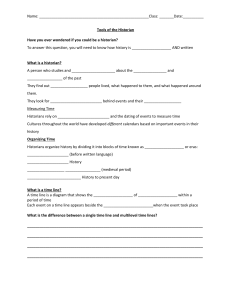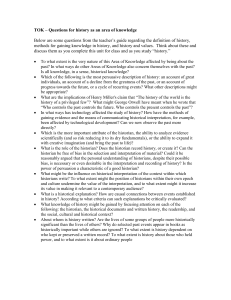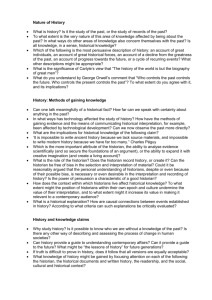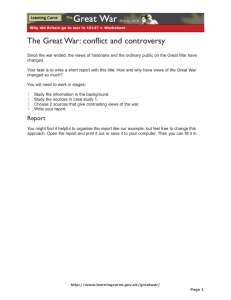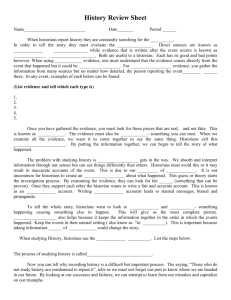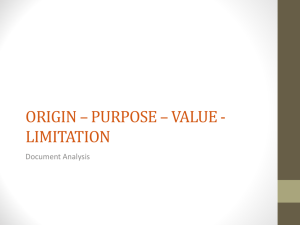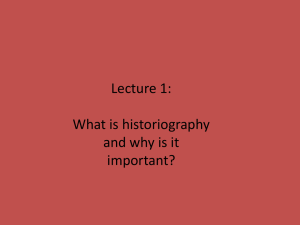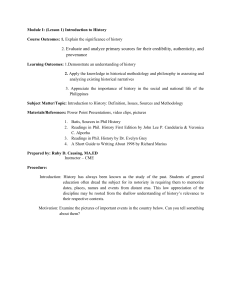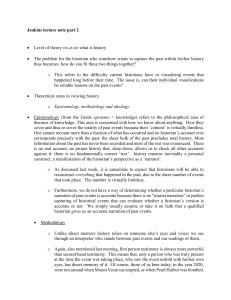m l t b o I == m l i... Your investigation
advertisement
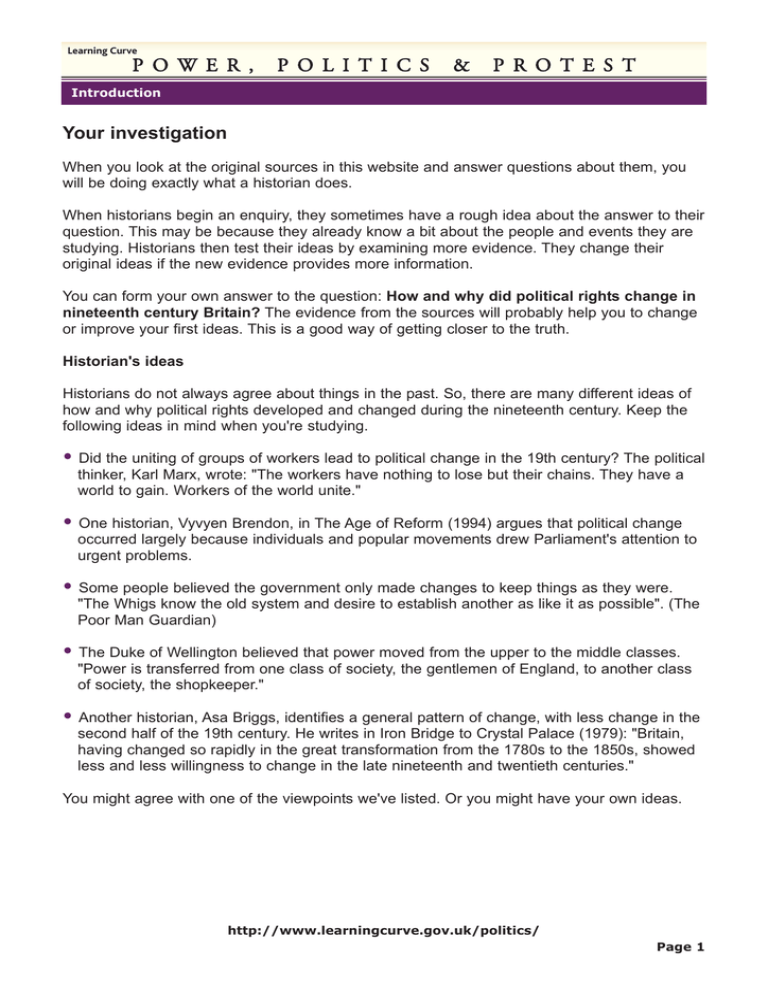
Learning Curve m l t b o I = m l i f q f ` p = C = m o l q b p q Introduction Your investigation When you look at the original sources in this website and answer questions about them, you will be doing exactly what a historian does. When historians begin an enquiry, they sometimes have a rough idea about the answer to their question. This may be because they already know a bit about the people and events they are studying. Historians then test their ideas by examining more evidence. They change their original ideas if the new evidence provides more information. You can form your own answer to the question: How and why did political rights change in nineteenth century Britain? The evidence from the sources will probably help you to change or improve your first ideas. This is a good way of getting closer to the truth. Historian's ideas Historians do not always agree about things in the past. So, there are many different ideas of how and why political rights developed and changed during the nineteenth century. Keep the following ideas in mind when you're studying. · · · · · Did the uniting of groups of workers lead to political change in the 19th century? The political thinker, Karl Marx, wrote: "The workers have nothing to lose but their chains. They have a world to gain. Workers of the world unite." One historian, Vyvyen Brendon, in The Age of Reform (1994) argues that political change occurred largely because individuals and popular movements drew Parliament's attention to urgent problems. Some people believed the government only made changes to keep things as they were. "The Whigs know the old system and desire to establish another as like it as possible". (The Poor Man Guardian) The Duke of Wellington believed that power moved from the upper to the middle classes. "Power is transferred from one class of society, the gentlemen of England, to another class of society, the shopkeeper." Another historian, Asa Briggs, identifies a general pattern of change, with less change in the second half of the 19th century. He writes in Iron Bridge to Crystal Palace (1979): "Britain, having changed so rapidly in the great transformation from the 1780s to the 1850s, showed less and less willingness to change in the late nineteenth and twentieth centuries." You might agree with one of the viewpoints we've listed. Or you might have your own ideas. http://www.learningcurve.gov.uk/politics/ Page 1
